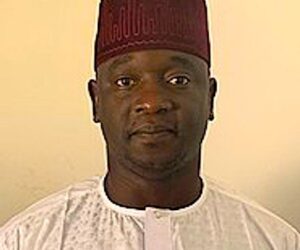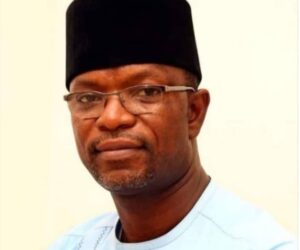I recently came across a Facebook post by Bello Galadanci, popularly known as Dan Bello, where he shared the image of a man lying on a hospital bed without
mattress, which he claimed was from a facility in Kebbi state. From that single picture, Bello concluded that the entire healthcare system in the state is in a shambles.
He didn’t stop there. He went on to allege that Governor Nasir Idris had ordered the arrest of the man who took and circulated the photo. Bello even shared the phone number of the police officer he claimed carried out the arrest. That, for me, is where the line was crossed.
Now, I must admit that I am a fan of Dan Bello. He has built a reputation as a fearless voice, unafraid to shine the light on uncomfortable truths. But I have also observed that his methods sometimes cross into the territory of overkill. This particular post is one of those instances.
Yes, the picture of a man lying on a bed without mattress evokes sympathy and frustration. Yes, it reminds us of the very real challenges of healthcare delivery in Nigeria. And yes, nobody in Kebbi state, including the governor himself, will claim that our health sector is exactly where we want it to be. But does that justify using one isolated case to paint the entire system as a failure? I don’t think so.
Governor Nasir Idris has acknowledged the dire condition of many hospitals in the state. He has admitted that there were times patients had to be treated on hospital floors. But to his credit, he didn’t stop at admitting. He began the slow, difficult process of rebuilding healthcare in Kebbi, one hospital at a time.
So, if Bello’s aim is to embarrass the governor with such images, he might be missing the point. The governor himself is the first to admit there’s a problem. What matters is what he has done and continues to do about it even today that Bello is having his moment of sensationalism while threatening to beam his searchlight on the entire state.
Gradually, people like Bello are beginning to build the image of bullies, people whose cult of followers is beginning to give the feeling of Nazi superiority. Bello loves this power that’s why he could threaten to tear down Kebbi state with his investigative sword.
But all his threats won’t change the fact that Gov. Nasir is trying to do something about healthcare delivery since his election two years ago. Take for example, the massive rehabilitation and equipping of Sir Yahaya Memorial Hospital in Birnin Kebbi. Once upon a time, this massive hospital was struggling with inadequate facilities. Today, the hospital boasts of modern diagnostic equipment, improved wards, and a new maternity complex that has significantly reduced maternal and child mortality in the capital.
Another example is the Kalgo General Hospital, which has been upgraded with new laboratories, additional staff quarters, and expanded wards. In Argungu, the General Hospital has seen renovations that include a functional theatre, improved emergency services, and the provision of an ambulance service for rural patients.
Governor Idris has also embarked on upgrading many Primary Health Care (PHC) centres across the state into cottage and specialist hospitals. In Jega, Maiyama, and Yauri, several PHCs have received new solar-powered equipment, better water systems, and the recruitment of more health workers to staff them. This step-by-step upgrading ensures that even rural communities benefit from access to quality healthcare without having to travel long distances.
Alongside physical renovation, the governor has prioritised welfare. Health workers’ salaries and allowances have been improved, which has boosted morale and reduced the rate of staff leaving for private practice or out-of-state postings. Training opportunities have also been expanded to ensure workers are not just more but better equipped to deliver modern healthcare.
The impact is already being felt. Statistics from the Ministry of Health show that maternal and child mortality in Kebbi has been dropping steadily over the last two years. Immunization coverage has improved significantly, thanks to partnerships with international health agencies and a renewed push by the state government to expand outreach programmes.
All these are measurable results that people in Kebbi see and feel in their daily lives. It is these efforts that earned Governor Nasir Idris recognition as one of the leading governors in Nigeria on healthcare delivery.
So, when Bello uses one picture to describe the entire system as a disaster, I can only call that sensationalism. It is not only unfair to the government but also to the hardworking health professionals who show up every day in hospitals across Kebbi, giving their best despite challenges.
Even more troubling is the claim that the governor ordered the arrest of the person who shared the picture. That is not how Nigeria works. Governors do not give direct instructions to security agencies on who to arrest. If an arrest was made, it could have been on the basis of other factors, and the governor may well be hearing of it for the first time just like the rest of us. To spin it otherwise is misleading.
And then there is the matter of the threat to publish both the phone number and photo of a police officer on social media. For someone like Bello, who prides himself on investigative journalism, this was reckless. Threatening to share phone number and officer’s photo amounts to endangering a sworn officer of the law. Has Bello considered the implications? Does he not realise that such exposure could place that officer and his family at risk of harm? Journalism is about holding power accountable, yes, but it is also about responsibility.
To be clear, I am not suggesting that all is perfect in Kebbi’s healthcare sector. It isn’t. But criticism must be balanced, fair, and constructive. Exposing gaps is important, but so is recognising progress. It is the combination of both that pushes a system forward.
Dan Bello’s brand of activism has its place, but when it crosses into sensationalism, it undermines its own credibility and we who value his work must point these flaws out just as in this case. Kebbi state deserves a more honest conversation about healthcare, one that acknowledges both the painful realities and the visible improvements. Not a generalisation of failure in the scale presented by Dan Bello.
The truth is that healthcare is not fixed overnight. It requires planning, investment, and follow-through. That is what Kebbi State is currently doing. From Sir Yahaya to Kalgo, Argungu to Jega, hospitals are being transformed. PHCs are being lifted to higher standards. More workers are being recruited. Equipment is being installed. And results are beginning to show.
The image Bello shared may have been real, but the narrative he built around it was incomplete. Healthcare in Kebbi is not in shambles. It is in transition from a state of neglect to a system that is gradually being repositioned. That is the bigger story, and I dare say it deserves to be told.
Gambo writes from Birnin Kebbi








